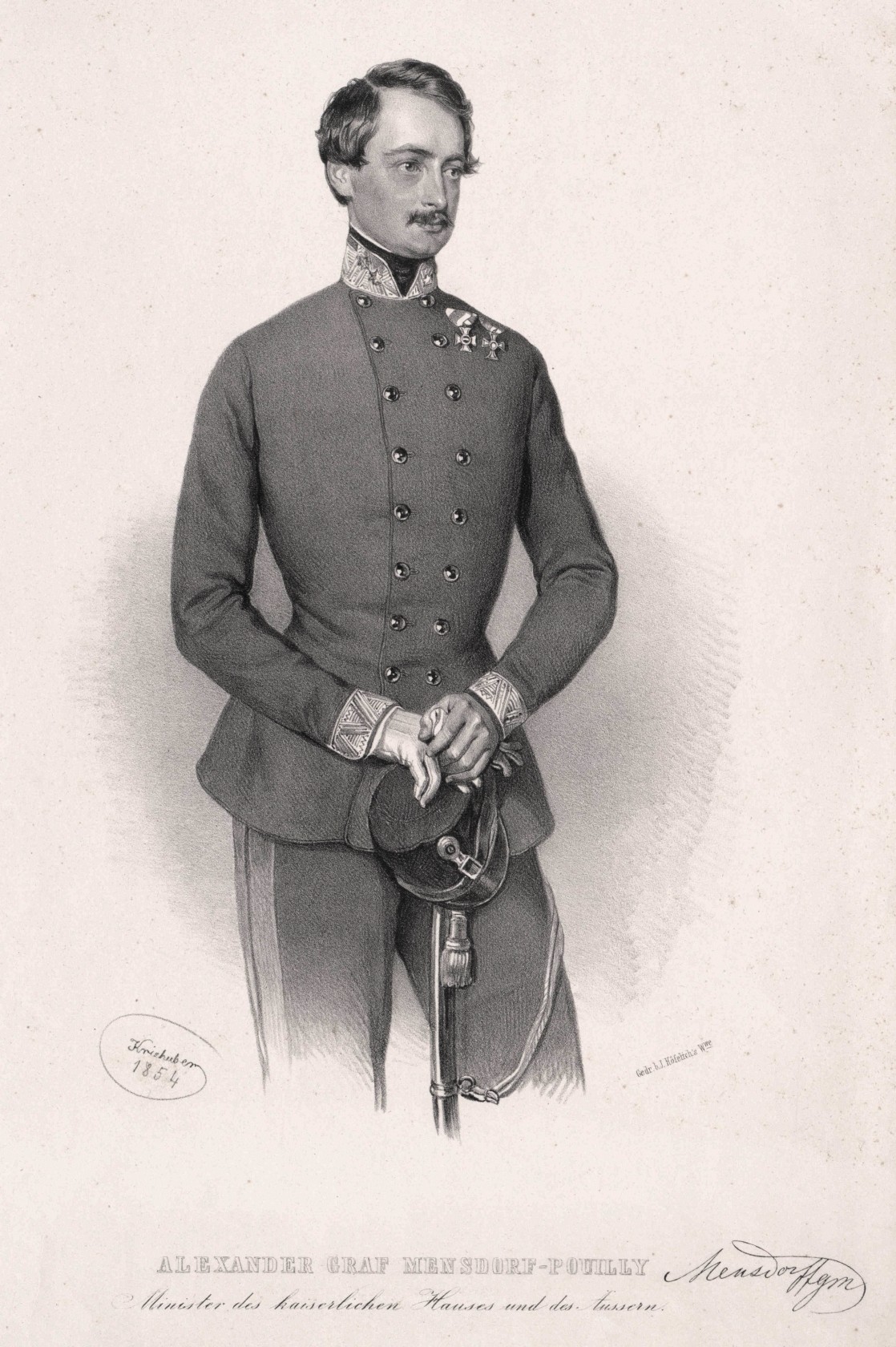 Count Alexander Mensdorff-Pouilly, graphic from the portrait collection of the Austrian National Library
Count Alexander Mensdorff-Pouilly, graphic from the portrait collection of the Austrian National Library
The life of Alexander Mensdorff-Pouilly was fundamentally different from that of other officials. He came from an old aristocratic family, the Pouilly, which left their homeland during the French Revolution. Thus, Alexander’s father Emanuel (1777–1852) had to build a position for himself in a completely different environment. He opted for a military career in the service of the Austrian Emperor and, like his brother, decided to take the name Mensdorff, which was supposed to help him to better adapt in the German-speaking world. His marriage to Princess Sophie of Saxe-Coburg-Saalfeld (1778–1835), who was of a substantially higher status, undoubtedly also helped him consolidate his position. Thanks to this marriage, Emmanuel and his descendants became related to a number of European noble families. Perhaps the most famous among his male cousins was Albert (1819–1861), husband of Queen Victoria of Britain (1819–1901), while the most famous female cousin was Queen Victoria herself. The loving union of Emmanuel and Sophie produced five sons, four of whom survived to adulthood – Hugo (1806–1847), Alphonse (1810–1894), Alexander (1813–1871) and Arthur (1817–1904). Their life trajectories show how varied the fates of 19th-century nobility could be.
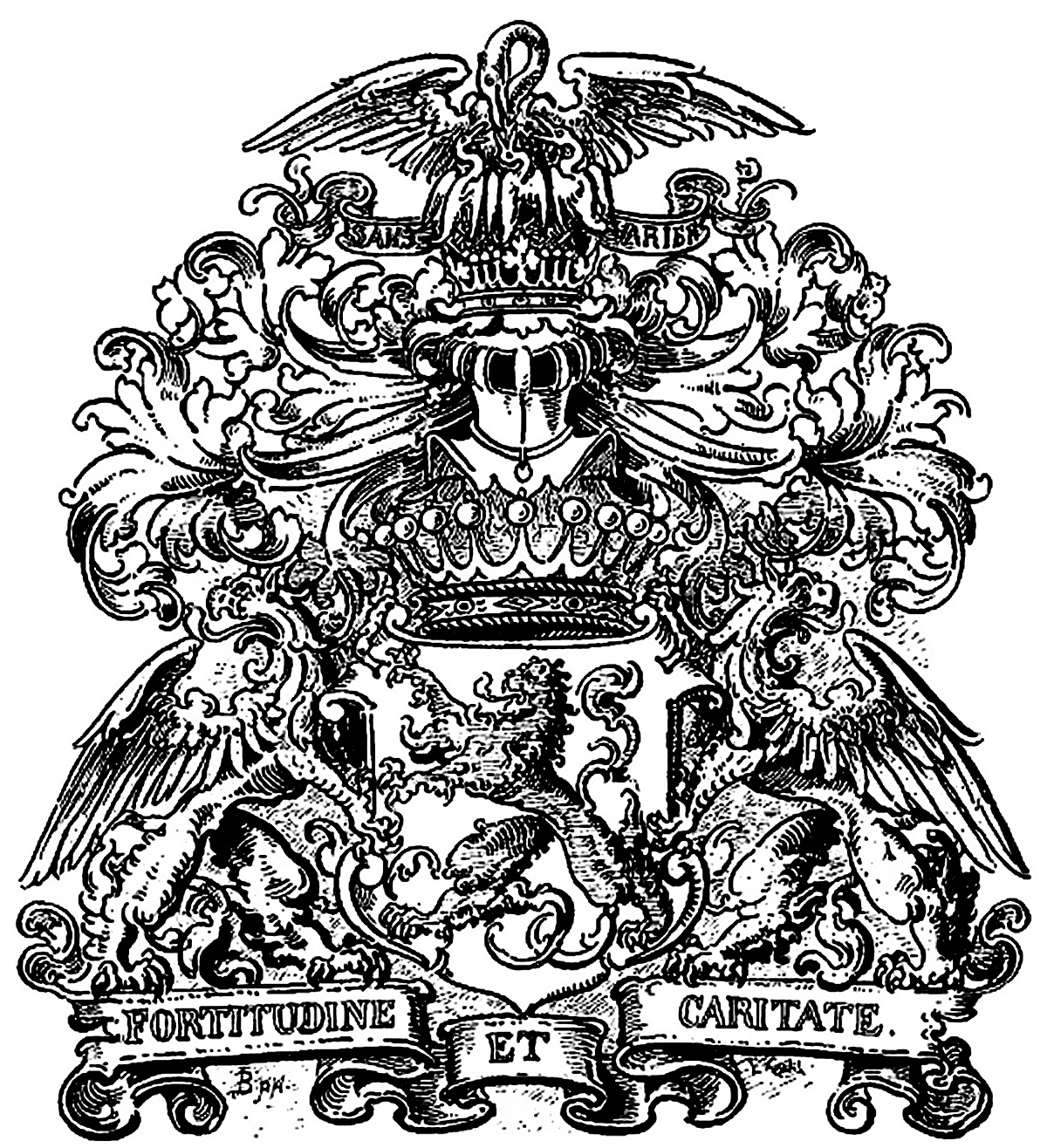 Coat of arms of the family Mensdorff Pouilly
Coat of arms of the family Mensdorff Pouilly
The eldest of the brothers, Hugo, was born in Coburg on August 24, 1806. Coburg was also the city where he grew up and received a private education. Emanuel wished to make military officers of his sons, and he succeeded. Hugo joined the army and became a cavalry officer. Although he was the eldest son and it was primarily him who was expected to ensure the continuation of the family, Hugo never married. He was no stranger to the company of women, but he did not meet a suitable partner from the upper classes. He preferred to remain alone rather than live in an unhappy marriage. During his military career, he won numerous awards and reached the rank of colonel. In 1847, however, his health began to fail. He was treated at a spa, first in Karlovy Vary (Carlsbad) and then in Jeseník (Freiwaldau), where he succumbed to laryngitis at the age of only 41.
The second-born Alphonse was born on 25 January 1810 in Coburg. His father intended a naval career for him. However, Alfonse refused and became an officer in the cavalry, where he attained the rank of colonel. A crucial issue for a man of his position was the choice of a bride. Alphonse seems to have had a lucky hand, since the woman he chose, Therese Dietrichstein (1823–1856), not only came from a good family, but there was also a mutual liking between them. The bride’s father, Franz Xaver of Dietrichstein (1774–1850), was initially not very enthusiastic about the match, hoping for a husband of a higher social position for his daughter. In the end, however, he agreed to their union. After Therese Dietrichstein became the heiress of the Moravian estate of Boskovice (Boskowitz), Alfons abandoned his military career and threw himself into the administration of the estate. For several years, during which they had four children, Alfonse and Therese lived a happy family life in Boskovice In 1856, however, tragedy struck the family – Therese died of scarlet fever. Alfonse resisted remarriage for several years, but the death of his only male heir, Arthur, in 1862, made him reconsider this decision.
His second wife was Marie, Countess of Lamberg (1833–1876), with whom he also had four children. Unfortunately, the second marriage did not last very long either, since Marie died at the age of only 42. But Alfons finally lived to see his longed-for heirs. The elder of them, Alfons Vladimír (1864–1935), later took over Boskovice. Besides taking care of the estate, Adolf also devoted himself to politics. From 1861 he sat in the Moravian Provincial Assembly in Brno and in the following year he also became a life member of the upper chamber of the Austrian Imperial Council. However, he did not see much sense in the exercise of these functions and seems to have been more comfortable with activities at a local level – in 1864–1876 he was mayor of Boskovice and in 1888 he even became its honorary citizen. Alfons died in Boskovice at the ripe age of 84 and was buried in the family tomb in Nečtiny (Preitenstein), which he had built himself.
Alexander was born on August 4, 1813 in Coburg as the third among his siblings. Like his brothers, he grew up in Coburg, where he befriended members of the most prominent European families. From a young age, however, he also felt a sense of belonging to the Austrian state and decided to serve in its army. His military career began in 1829 when he became a cadet in an infantry regiment. Over the next 20 years he rose to the rank of major general. He then entered the diplomatic service and became Austrian ambassador in St. Petersburg. However, he lasted only a year in this position and then returned to the army. At the end of the 1850s it started to become clear that if he really wanted to live up to his family duties, military service alone would not be sufficient. So he began to look around for a suitable bride. According to family correspondence, members of the Mensdorff-Pouilly family considered the mutual affection of both fiancés a necessary condition for marriage. However, Alexander seems to have given up on this requirement.
In 1857 he married Alexandrina of Dietrichstein (1824–1906), the future heiress of the large Mikulov (Nikolsburg) estate in South Moravia. The husband and wife had to find their way to each other, which was difficult at first, as they did not live together. Eventually, however, they became close and their marriage was happy. Four children were born into it, three of whom lived to adulthood – Marie (1858–1889), wife of Count Hugo Kálnoky (1844–1928), Hugo (1858–1920), heir to the estate and husband of the Russian noblewoman Olga Dolgorukova (1873–1946), and Klotylda (1867–1943), wife of Albert Apponyi (1846–1933).
In 1859 Alexander became lieutenant field marshal and two years later Governor in Lvov, where he also served as Commanding General for Galicia and Bukovina. One of the highlights of Alexander’s career was undoubtedly the year 1864, when he was appointed Austrian Foreign Minister. During his tenure, however, Austria lost the Austro-Prussian War, and Alexander was subsequently relieved from his post. At the end of his life, he served as Czech governor in Prague. It was also in Prague that he died on 14 February 1871 and was buried in the family tomb in Mikulov.
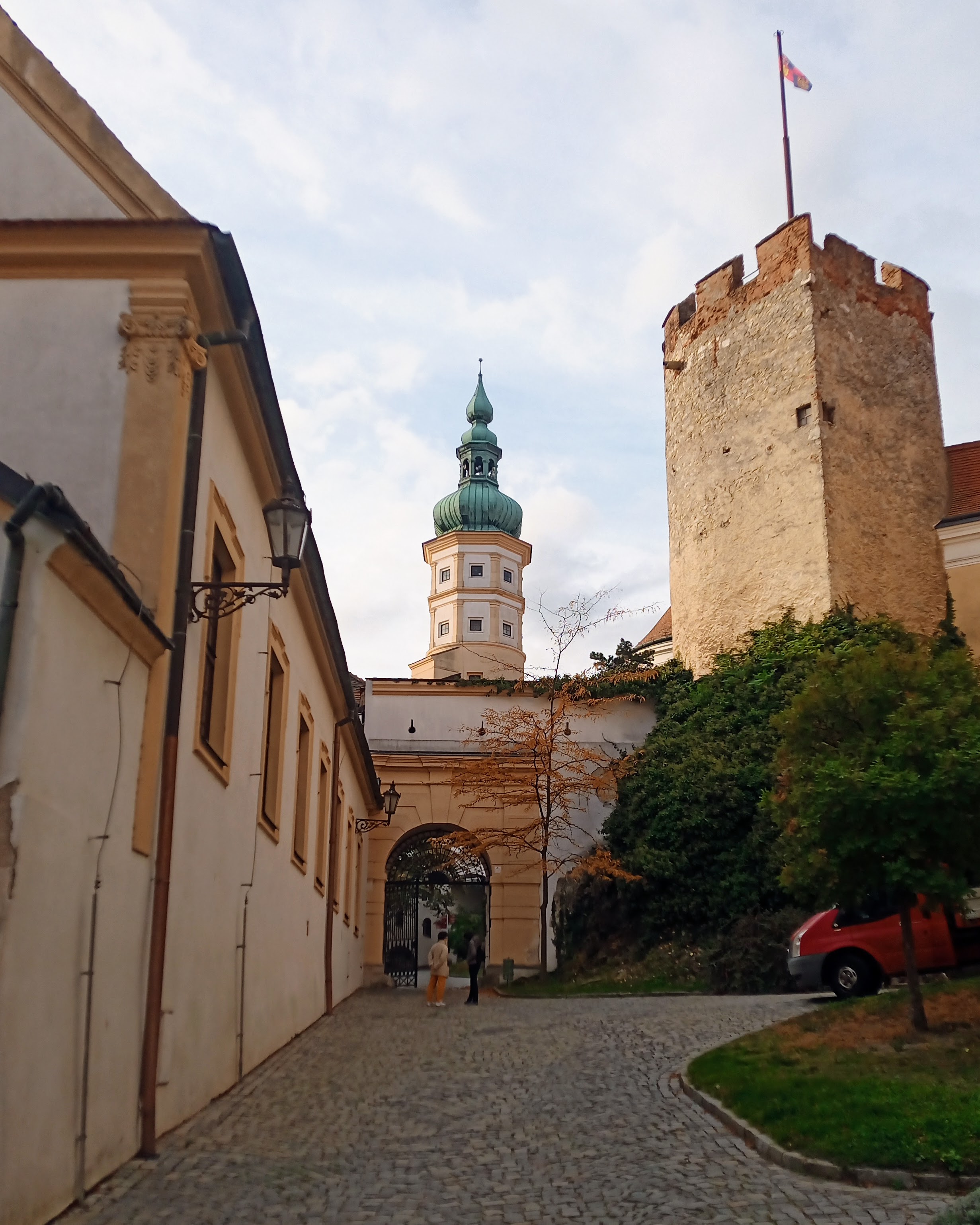 The castle in Mikulov today
The castle in Mikulov today
The youngest Arthur, like his brothers, was born in Coburg, on 19 August 1817. He too became an officer in the army and for many years served the Austrian Emperor. However, when it became clear that he would get no further than the rank of major, he decided to leave active service in 1852. Instead, he turned to business. He tried his luck in coal mining but failed. Unfortunately, the income from his lands did not cover his expenses, so he was forced to borrow frequently from his family, including Queen Victoria. Neither was he very successful in his personal life. In 1853 he married Magdalena Kremz (1835–1899), a low-born circus rider, whom he had fallen in love with. His brothers and other relatives strongly criticized him for this decision and never fully accepted Magdalena in their midst. However, they did not reject Arthur himself and continued to help him. Arthur later came to regret his choice, since Magdalena really was not a good match for him, and in 1882 they divorced. Near the end of his life, Arthur found himself a matching bride – Countess Bianca Adamovich de Csepin (1837–1912). After two years of marriage, Arthur died in Velenje, a town in what is now Slovenia.
Service in the army played an absolutely fundamental role in the lives of the four Mensdorff-Pouilly brothers. Along with their aristocratic origin, it enabled them to establish themselves socially and economically in Austrian society. The family’s marriage policy also helped them on their way to the top. It was thanks to his wife’s inheritance that Alphonse became a landowner. As for Alexander, although he himself did not participate in the running of the Mikulov estate, the profits from it allowed even him to lead an expensive life. His clerical career was rather a side effect of the military one, and his social status, abilities and character, which made him popular among the people, undoubtedly played a role in it.
Bibliography:
Švaříčková-Slabáková, Radmila: Rodinné strategie šlechty. Mensdorffové-Pouilly v 19. století. Praha: Argo, 2007.
Švaříčková-Slabáková, Radmila: Rod Mensdorff-Pouilly a boskovický velkostatek. In: Ott, Matěj, Markéta Malachová, and Roman Malach: Boskovice 1222–2022. Boskovice: město Boskovice ve spolupráci s Muzeem regionu Boskovicka, 2022.
Švaříčková-Slabáková, Radmila: Šlechtic – Příklad Huga Mensdorffa-Pouilly. In: Fasora, Lukáš, Jiří Hanuš, and Jiří Malíř. Člověk na Moravě 19. století. Brno: Centrum pro studium demokracie a kultury, 2008.
Brichtová, Dobromila: Zámek Mikulov. Mikulov: Regionální muzeum v Mikulově, 2015.
Brichtová, Dobromila: Pod tvými ochrannými křídly. Od loretánského kostela k hrobce Dietrichsteinů v Mikulově. Mikulov: Turistické informační centrum, 2014.
Steiner, Petr: Hrabě Hugo Kálnoky de Köröspatak (1844–1928). Život a osudy šlechtice na konci 19. století. Časopis Matice moravské 141/1, 2022.
Ioan Cavaler de Pușcariu (1824–1912)
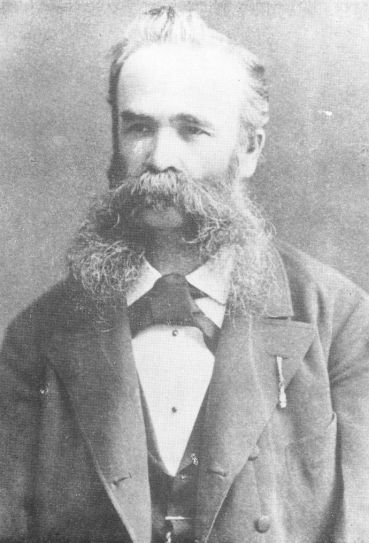
Image source: https://ro.wikipedia.org/wiki/Ioan_Pușcariu#/media/Fișier:Ioan_Pușcariu.jpg
One of the leading Romanians of the 19th century in Transylvania, Visarion Roman (1833–1885), wrote at one point, with annoyance, to one of his friends: “Perhaps we, this kind of people, are destined to be everything” (Netea, Noi contribuții, p. 34–35). His dissatisfaction was due to the fact that, in the mid-19th century, there were so few Romanians in Transylvania whose training would allowed them to hold public office or lead the institutions of civil society that multipositionality was ubiquitous and forced them into an often undesirably high pace and amount of work.
One of these people who was “destined to be everything” was Ioan Ritter von Pușcariu (1824–1912).
The Pușcașu family settled in the village of Sohodolul Branului, in Southern Transylvania in the early 1700s, and in the second half of the century its members were already mentioned as priests and merchants, as well as writers of petitions to the authorities, which underlines an elite status within the community. From this line of priests, some of whom one can still see today immortalized in the painted porch of the churches they built, was born in 1824 Ioan, the first of the ten children of the priest Ioan (1878–1871) and of his wife Stana (1801–1886), and also the first of those who would change the name of Pușcașu to Pușcariu.
Ioan Pușcariu attended primary school in Sohodolul Branului and then in the city of Brașov / Kronstadt / Brassó, where he also attended the local Catholic secondary school. He graduated in 1842 at the Catholic gymnasium in Sibiu / Hermannstadt / Nagyszeben, after which he attended an Orthodox theological course of six months. However, the following year he changed his mind and began studying Law at the Academic Lyceum of the Piarists in Cluj / Kolozsvár, then in 1846 at the Academy of Law in Sibiu. The family's priestly tradition was continued by his brother Ilarion (Bucur) Pușcariu (1842–1922).
In the spring of 1848, freshly graduated from legal studies, Ioan Pușcariu got actively involved in the revolutionary events, as steward of the national assembly of Romanians in Blaj / Balázsfalva, military tribune, and later revolutionary propaganda commissioner in Walachia. During the Neo-Absolutist period, like many Romanian graduates of legal studies, he pursued a career as a civil servant in the administrative apparatus of the province, most probably on the recommendation and with the support of the Orthodox bishop Andrei Șaguna (1809–1873), whose ecclesiastical, cultural and political initiatives he would constantly support throughout his life. After changing several minor offices in Hunyad/Hunedoara County, he became in 1854 sheriff (szolgabíró/pretor) of sub-district Scharken/Sárkány /Șercaia, in Făgăraș. Concurrently, he published books of legal commentaries and legal popularization in Romanian, and a dictionary of bureaucratic terms in Romanian and German.
After 1860, amidst the political changes brought about by the liberal regime, the former local civil servant became in 1861 drafter at the Royal Chancellery of Transylvania in Vienna, another position to which Șaguna’s recommendation contributed greatly. In January 1862, amidst the Viennese government’s attempts to reduce the political opposition of the Hungarians in Transylvania, Ioan Pușcariu was appointed to an important position in the provincial administration: county-commissioner (alispán) of Kükülő/Târnava (Cetatea de Baltă) County, a position he held until August 1865. During these four years he was also elected deputy to the provincial diet in Sibiu (1863–1864), deputy to the Imperial Council (1864–1865), and deputy to the provincial Diet in Cluj (1865). His upstanding career was crowned by his ennoblement by imperial decree on 10 July 1864 with the Order of the Iron Crown third class, and the rank of knight (Ritter von).
The esteem he enjoyed among the authorities and the support of Bishop Șaguna were manifested even when the political regime began to change and the diet of Sibiu was dissolved by imperial decree. Pușcariu was among the few Romanians who did not lose their offices, instead he was only relocated from Kükülő County to the position of Captain General of the Fogaras/Făgăraș District (August 1865). It is illustrative of the expectations that the administrative leader of a county had to fulfil at the time the words of Count György Haller (1818–1892), who explained to Pușcariu in 1865 that he had refused to take up the leading office of Kükülő County because he would not be able to satisfy “a couple of hundred hungry aspirants for 20 years (i.e., since 1849). It would have been woe to me if I could not have given them all bread” (Pușcariu, Notițe..., 1913, p. 84).
In 1866 Ioan Pușcariu was elected deputy to the Hungarian Parliament in one of the constituencies of the Fogaras/Făgăraș District, and until 1869 he was among the so called “activists” – those Romanian political leaders who tried to obtain as many political concessions as possible from the Hungarian political elite, and at the same time to motivate both the rest of the Romanian elite and the voters to continue their involvement in political life. His position as a mediator was also recognised and rewarded by the Hungarian government when he was appointed as a section councillor in the Ministry of Religious Affairs and Public Instruction in December 1867. By 1869, however, his star was already fading. After three years of successive political failures from the part of the “actvists”, the newly founded Romanian National Party of Transylvania (March 1869) decided to adopt the policy of electoral passivity, thereby refusing to recognise the legal effects of the Settlement of 1867. Ioan Ritter von Pușcariu was among the four participants in the party’s conference (from ca. 400) who voted against passivity and stood by his position in the years that followed. Indeed, the fact that he had been appointed in May 1869 as a judge of the highest court in Hungary, the Royal Curia, must have contributed considerably to him maintaining his political option both in the 1870s and in the 1880s, until his retirement as a judge in 1890.
At the same time, he remained close to the circles of the Orthodox Metropolitan See of Sibiu, where his brother Ilarion became an archimandrite. In 1884 he was one of the supporters of the newly-founded, short-lived Romanian Moderate Party, which promoted collaboration with Hungarian governments, but ultimately failed to secure the support of the Romanian voters. This was the last important moment of his political career, after which, as an old man, he only concerned himself with his judicial office and with scholarly activities.
As early as 1861, Ion Pușcariu was one of the initiators of the Romanian cultural association in Transylvania: Astra. He remained a member all his life, but from 1873 he also held leading positions in the Society for the Romanian Theatre Fund until 1889. He was also among the promoters of the national costume among the Romanian elite. Finally, he was one of the leading members of the Gojdu Foundation, which supported the studies of numerous Romanian Orthodox pupils and students in Hungary. In 1877 Ioan Pușcariu was elected honorary member of the Romanian Academy in Bucharest, to whose work he contributed historical, genealogical, and philological writings. He excelled less in the field of literary creation, where his poetic attempts, although consistent, never rose to a quality that would ensure his recognition. On the other hand, he carried on a constant scholarly activity as a member of Astra until the last years of his life: “Even in his old age, the much-missed deceased, at whose coffin we lie, did not hesitate for many years to take part in the work of our historical section, often enriching it and giving it wise advice” (Necrologuri, p. 153).
The life and career of Ioan Pușcariu illustrates the opportunities for social mobility among the Romanians in Transylvania offered by education and the favourable context of the 1850s and 1860s, but also the important role played by the church in the formation of the national political elite. An important number of Romanian politicians and civil servants came from clerical families in the early and mid-nineteenth century, and for those who reached important positions in the provincial apparatus or sometimes even in the capital city of the Monarchy, the support of churches of both denominations (in the case of Pușcariu the Orthodox one) was always a mandatory requirement.
Bibliography
Necrologuri, in Transilvania 43, 1912, nr. 1–2, p. 152–154.
Keith Hitchins, A Nation Affirmed: The Romanian National Movement in Transylvania, 1860–1914, Bucharest, 1999.
Nicolae Josan, Ioan Pușcariu (1824–1912). Viața și activitatea, Alba Iulia, 1997.
Ioan cavaler de Pușcariu, Notițe despre întâmplările contemporane, Sibiu, 1913.
Ioan cavaler de Pușcariu, Notițe despre întâmplările contemporane. Partea a II-a. Despre pasivitatea politică a românilor și urmările ei, ediție îngrijită de N. Josan, București, 2004.
Sextil Pușcariu, Spița unui neam din Ardeal, ediție, note și glosar de Magdalena Vulpe, Cluj, 1998.
Senior State Official and Deputy Ferdinand Conrad Johann Voith von Sterbez (1813–1882)
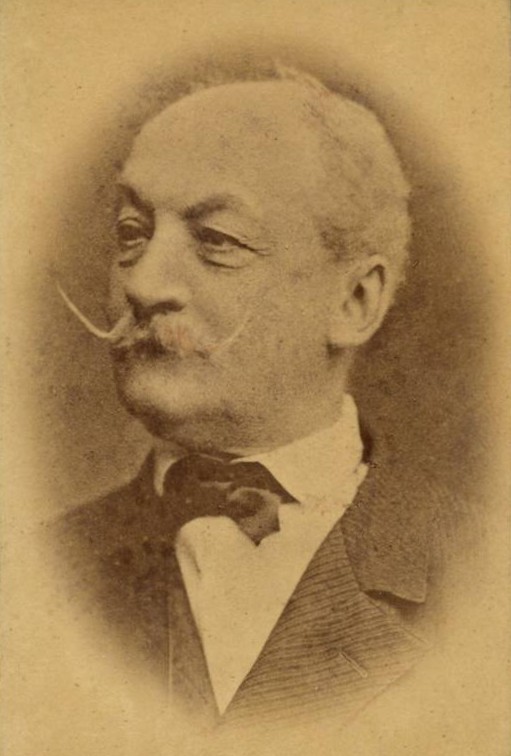
Ferdinand baron Voith von Sterbez
“[…] You have conquered the hearts of all the citizens […] by Your noble efforts and deeds. What wonder, therefore, that on this momentous day, when Your Eminence celebrates the precious feast of Your forty years of public service, the hearts of our fellow citizens, who have been privileged to witness Your beneficent work in the field of public administration […], rejoice.” These are the words of an official letter of congratulation addressed to Ferdinand Voith von Sterbez by the town council of Německý Brod (today Havlíčkův Brod / Deutschbrod) in 1875. Ferdinand Voith had been an exemplary civil servant, who managed to be popular among both his superiors and subordinates. He dedicated all his life to public service as a district captain, a member of parliament and a public figure.
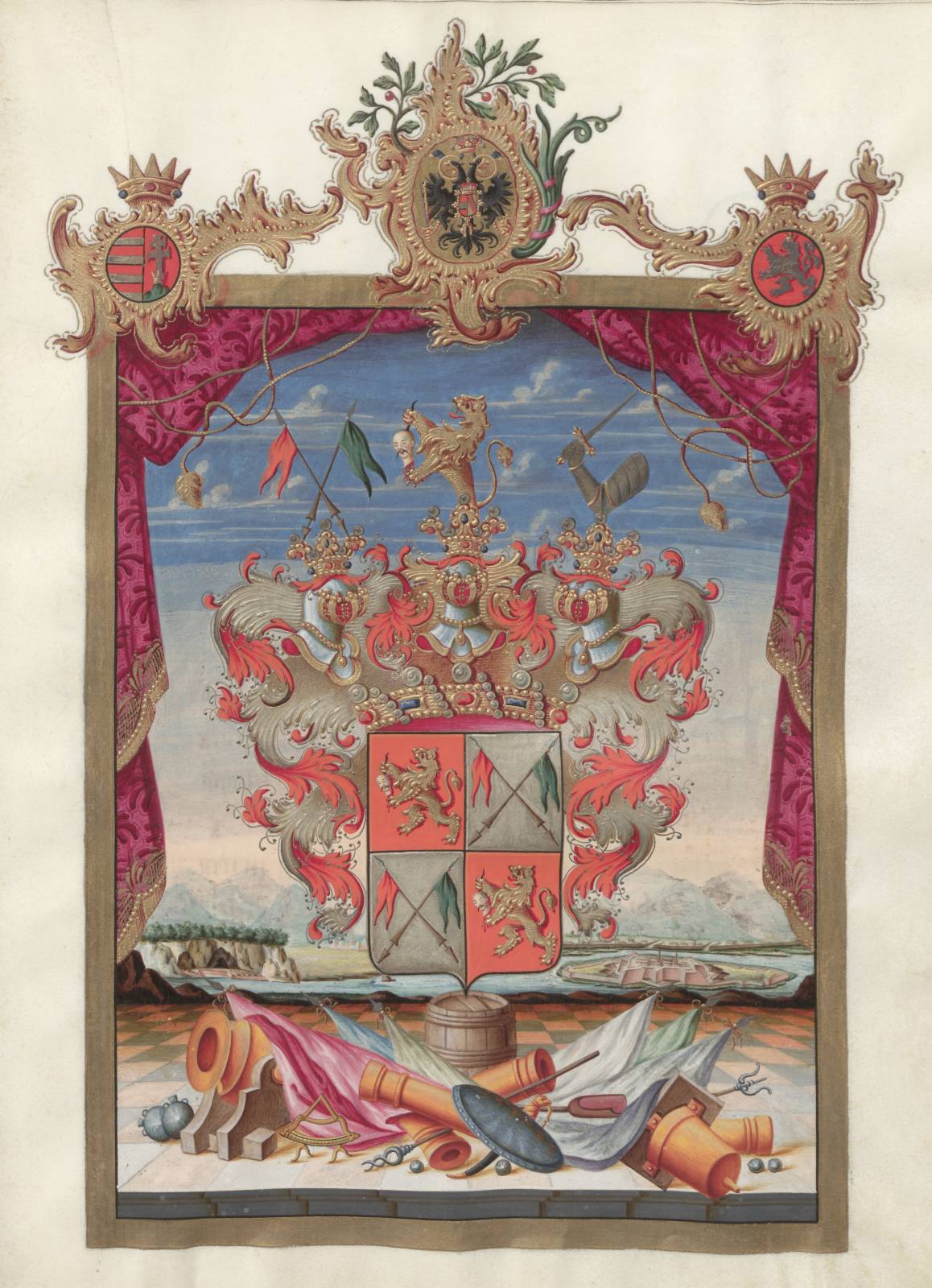
Coat of arms of the Voith von Sterbez family. SOkA Kutná Hora, fonds Ferdinand Voith von Sterbez, box 3, call number 55.
Ferdinand’s grandfather Johann von Voith (1746–1831) was an imperial officer and so was Ferdinand’s father Vincenz (1785–1845). However, after several years in the army Vincenz decided to leave and he became a hereditary postmaster. This was a prestigious position in the nineteenth century. Vincenz got this position because of his marriage to Theresia Kocy (1790–1838), whose father had held the post before him.
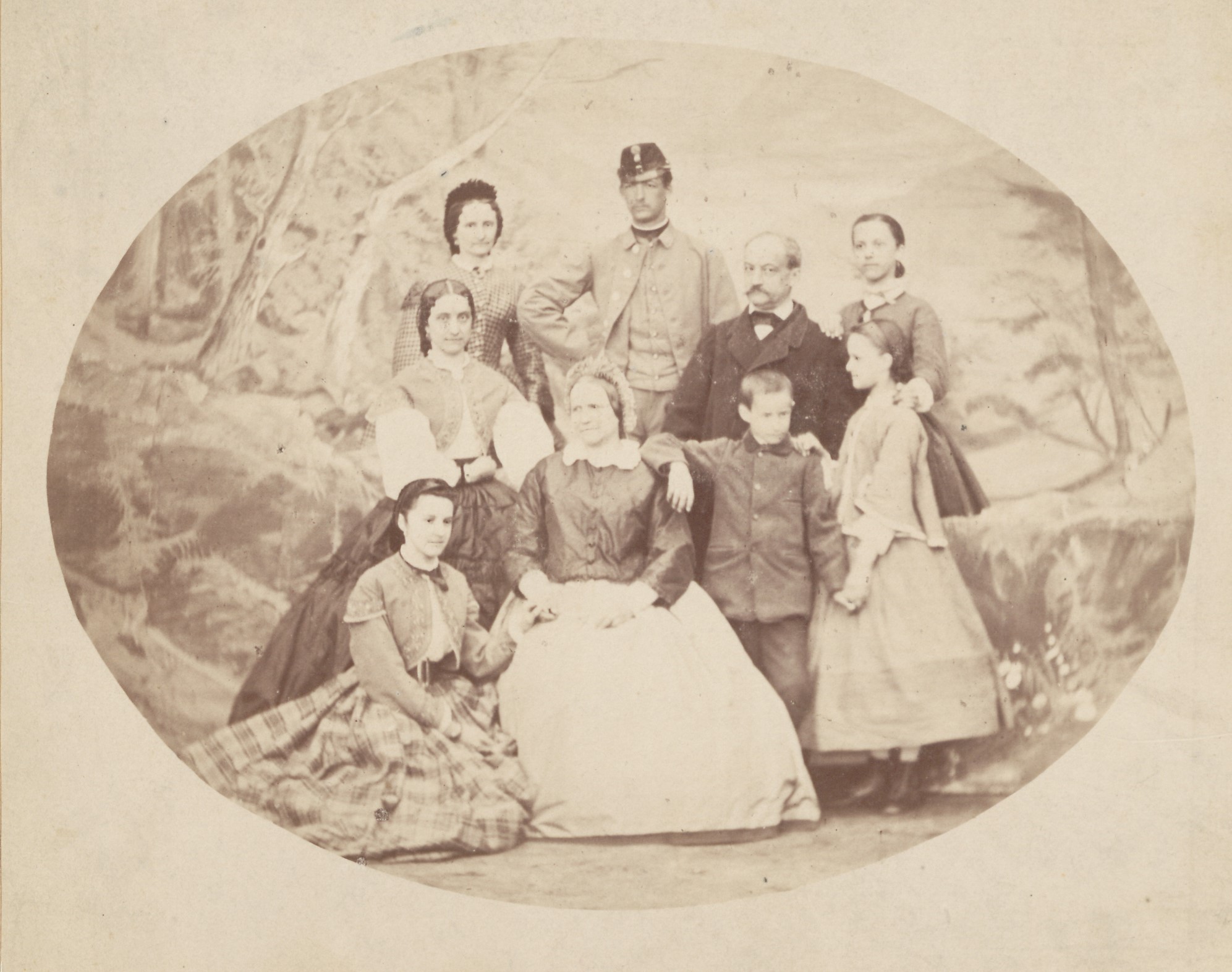
Family of Ferdinand Voith von Sterbez. SOkA Kutná Hora, fonds Ferdinand Voith von Sterbez, box 3, call number 40.
Vincenz and Theresia were married for more than 30 years, but they had only one son – Ferdinand Conrad Johann, who was born on May 20, 1813, in Německý Brod. In this town Ferdinand also attended grammar school and probably had an opportunity to learn more about the Czech national revival. Karel Havlíček Borovský (1821–1856), a journalist and important personality for the Czech emancipation movement, went to this school as well, but at this point Ferdinand and Karel did not meet. After finishing secondary education, Ferdinand studied law in Prague, which was an essential prerequisite for his future in the state administration.
His first job was at the Land Governor’s Office in Prague as a trainee official. This stage of F. Voith’s career did not last very long, since he passed an exam and became a trainee official the following year. At this point of his career, he still did not receive any salary, but that did not prevent him from getting married and starting a family. In 1837 he married Maria Anna Theresia (1816–1885), daughter of Baron Johann Matzner von Herites (1769–1841).
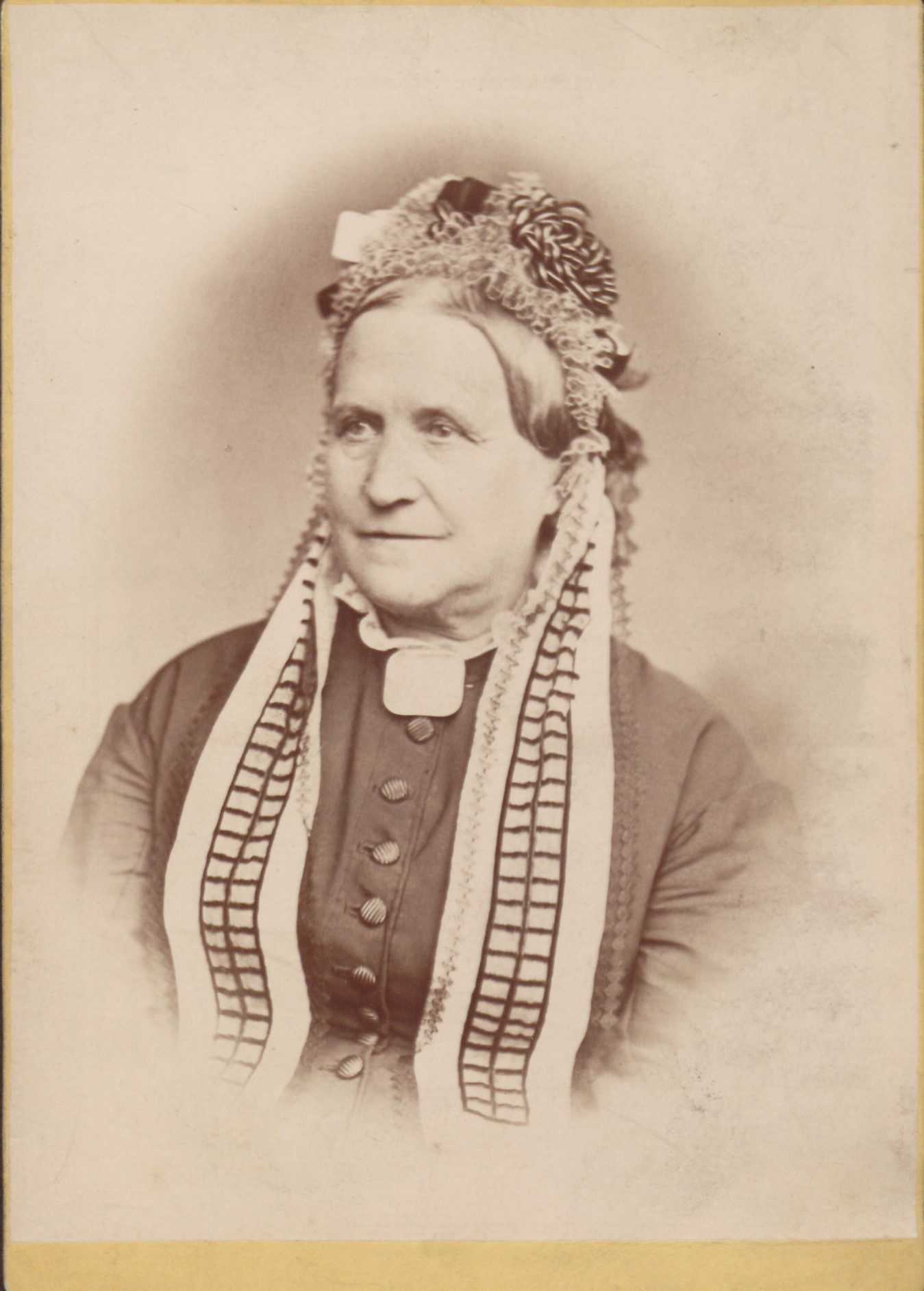
Maria Voith von Sterbez born von Herites. SOkA Kutná Hora, fonds Ferdinand Voith von Sterbez, box 3, call number 39.
It was only in October 1849, when Ferdinand finally began receiving an adequate salary for his work. In 1868, after working in a few more Bohemian towns, he reached the position of a district captain at the District Captainship in Čáslav and kept this post until his death. The first years of marriage must have been difficult for both Ferdinand and his wife. They had ten children, who were born in four different towns. Four children died before they became adults. The financial situation of the family was not satisfactory either. Ferdinand had to borrow money repeatedly, but, fortunately, due to his status, there were always enough creditors willing to help him out.
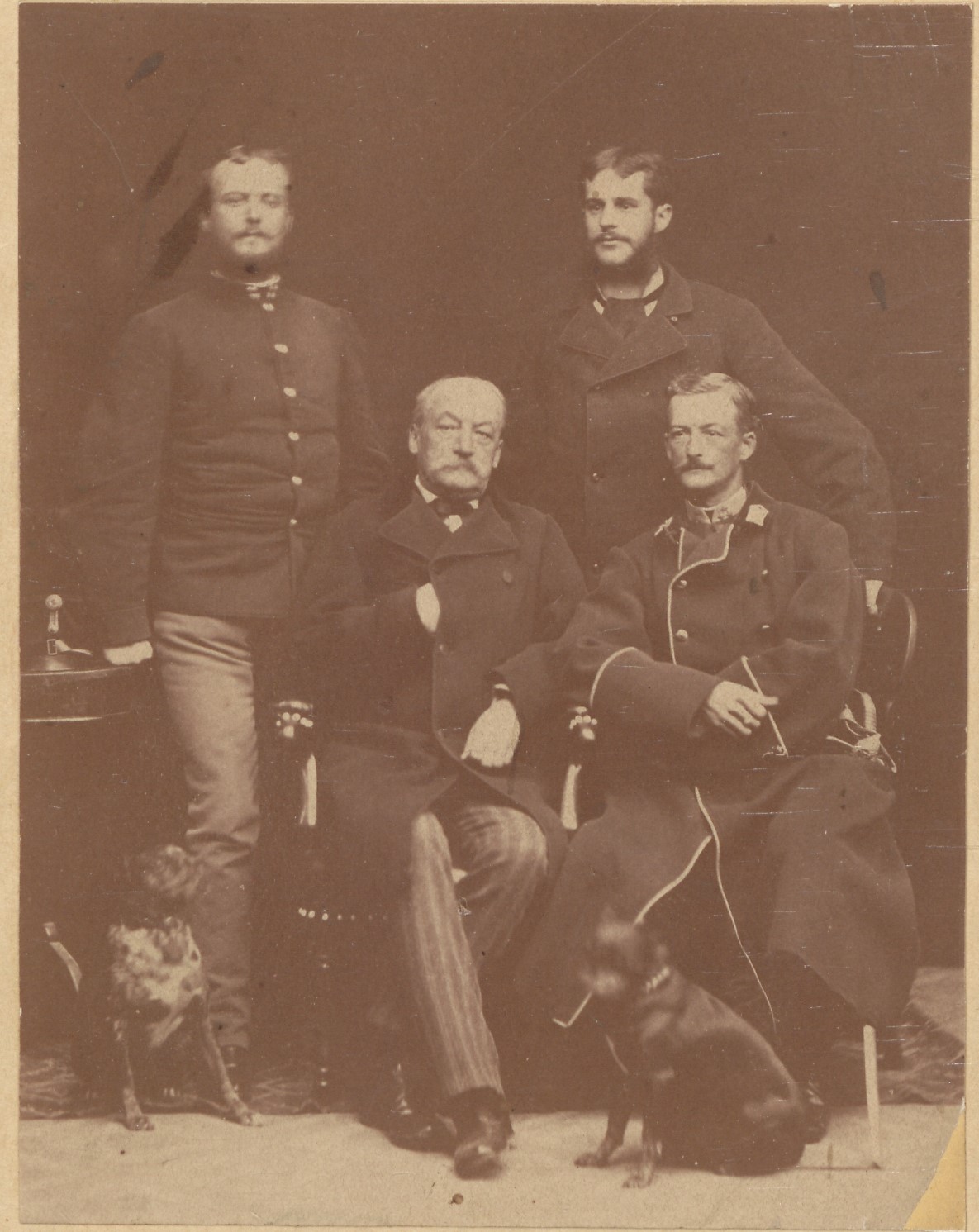
Ferdinand Voith von Sterbez and his sons. SOkA Kutná Hora, fonds Ferdinand Voith von Sterbez, box 3, call number 42.
Ferdinand Voith von Sterbez served the Austrian state at the time when the authorities were supposed to oppress any kind of anti-government resistance. The difficulties of his position within the system may be best demonstrated in his relationship with Karel Havlíček Borovský, who was constantly critical of the Austrian government. For his public comments he was arrested in December 1851 and Ferdinand, as a representative of the local administration, was present during this arrest. Later on, Ferdinand’s daughters claimed that their father tried to warn Karel, but there is no proof for this. It is clear that Ferdinand helped Karel, when the journalist was in exile in Brixen, but Ferdinand never forgot that he was first and foremost a civil servant, who served the Austrian state.
When Ferdinand’s position in the state administration was stable, he entered another public sphere – politics. In 1861 he became a deputy in the Bohemian Diet for the curia of rural communities. Ferdinand was obviously popular among village mayors, who formed a significant part of the electorate. During his six years in the diet, he usually endorsed bills which limited the power of large estate owners and supported the rights of all nations to rule their own things within the monarchy. In the 1860s, the involvement of civil servants in politics was accepted and even welcomed by the authorities. The obvious conflict of interests did not represent a problem. This changed in the 1880s, when the government prohibited state officials from entering politics in order to secure their neutrality.
As mentioned before, Ferdinand and Maria had ten children together, but four of them did not survive their childhood. The oldest daughter Maria (1838–1900) got married twice. Her first husband was Philip von Behacker (1809–1884), a Court Secretary, and her second husband was Jan Němeček (1837–1908), a bank clerk. Her younger sisters Bertha (1844–1920) and Hermine (1851–1921) never married and spent their lives living together in Kolín. As they were not in a position to earn their own salary, they lived on their parents’ inheritance. The oldest son Vincenz (1842–1912) embarked on a military career and achieved the rank of major. The second oldest son Rudolf (1848–1905) join the army as well and became a captain. He married Anna Maria Tiegel von Lindenkron (1862–1929), the heiress of the estate of Osečany. The youngest son Ferdinand (1856–1885) started to study at Technical College Prague but died of tuberculosis at the age of 29.
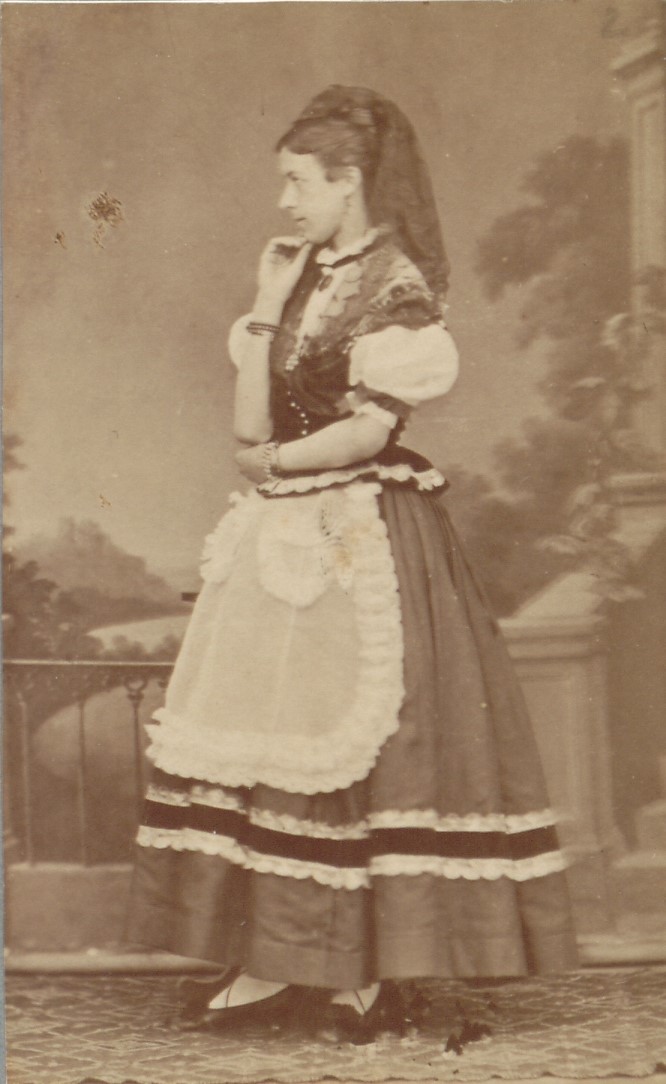
Hermina Voith von Sterbez. SOkA Kutná Hora, fonds Ferdinand Voith von Sterbez, box 3, call number 44.
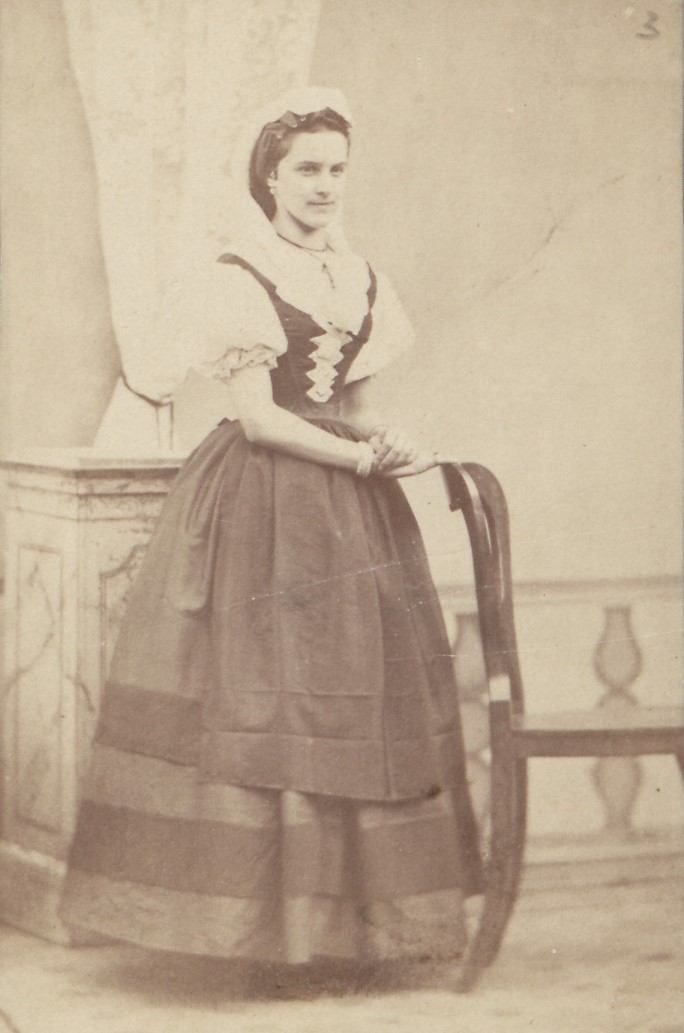
Berta Voith von Sterbez. SOkA Kutná Hora, fonds Ferdinand Voith von Sterbez, box 3, call number 44.
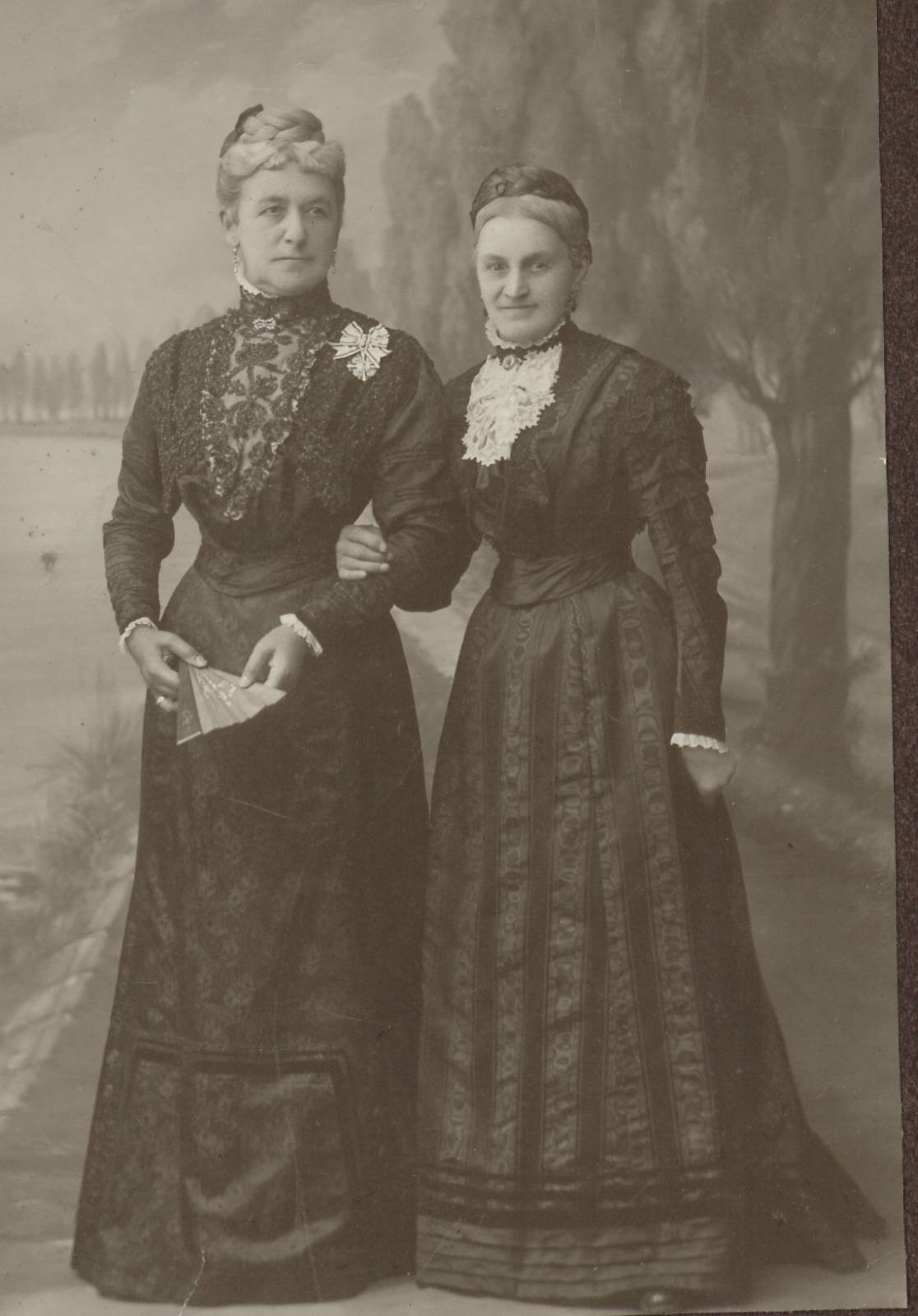
Hermina and Berta Voith von Sterbez. SOkA Kutná Hora, fonds Ferdinand Voith von Sterbez, box 3, call number 45.
Ferdinand Voith von Sterbez died on 10 February 1882 in Čáslav, a town, which became his destiny. His creditor Vojtěch Weidenhoffer (1826–1901) noted in his diary on this day: “This evening Mr Ferdinand Baron Voith von Sterbez, a Junior Governor’s Office Councillor and honorary burgher of this town, passed away. He was a meritorious and much respected and admired man. May God grant him a peaceful rest.” The funeral was a huge event attended by thousands of people, which was without any doubt a manifestation of F. Voith’s importance for the local community.
Although Ferdinand came from a noble family, his ancestors did not belong to old aristocracy and did not secure a stable income for him and his children. Ferdinand’s origin might have been useful at the beginning of his career, but later it was mostly his skills and diligence, which helped him to succeed. Unfortunately, this was not enough to provide sufficient inheritance for his children. Ferdinand felt sympathy for the Czech national revival, but he was never disloyal to his employer – the Austrian state.
Archival Sources
Státní okresní archiv Kutná Hora (State District Archives Kutná Hora, SDA Kutná Hora), fonds Voith von Sterbez Fedinand.
Bibliography
Karásek ze Lvovic, Jiří. O „muži, jenž zatýkal Havlíčka“. Z materiálu ke vzpomínkám Jiřího Karáska ze Lvovic [About “the Man who Arrested Havlíček”. From Materials about the Memories of Jiří Karásek ze Lvovic]. Literární rozhledy XIII, no. 9, June and July 1929: 61–62.
Kazbunda, Karel. Karel Havlíček Borovský. Svazek 1. 1821 – revoluční události 1848 [Karel Havlíček Borovský. Volume 1. 1821 – Revolutionary Events of 1848]. Praha: Ministerstvo vnitra České republiky, Odbor archivní správy a spisové služby, 2013.
Kazbunda, Karel. Karel Havlíček Borovský. Svazek 2. Ústavní oktroj 1849 – konfinování 1851 [Karel Havlíček Borovský. Volume 2. Constitution of 1849 – Expulsion 1851]. Praha: Ministerstvo vnitra České republiky, Odbor archivní správy a spisové služby, 2013.
Kazbunda, Karel. Karel Havlíček Borovský. Svazek 3. Brixen, Doma [Karel Havlíček Borovský. Volume 3. Brixen, Home]. Praha: Ministerstvo vnitra České republiky, Odbor archivní správy a spisové služby, 2013.
Klečacký, Martin. “Císařský úředník a politická strana” [An Imperial Official and a Political Party]. In Úředník sluhou mnoha pánů? Nacionalizace a politizace veřejné správy ve střední Evropě 1848–1948 [The official as the Servant of Many Masters? Nationalisation and Politisation of Public Administration in Central Europe 1848–1948]. Edited by Martin Klečacký. Praha: Centrum středoevropských studií, společné pracoviště CEVRO Institutu, z.ú. a Masarykova ústavu a Archivu AV ČR, v.v.i., 2018: 43–58.
Klečacký, Martin. Poslušný vládce okresu. Okresní hejtman a proměny státní moci v Čechách v letech 1868–1938 [Obedient Master of the District: District Captain and Changes in State Power in Bohemia in the Years 1868–1938]. Praha: Nakladatelství Lidové noviny, 2021.
Steinbauer, Jan. O předcích zemského a říšského mladočeského poslance JUDr. Eduarda Brzoráda. Děje rodů von Herites, von Krziwanek, Delorme a Brzorád. [online]. [cit. 26.11.2024]. Dostupné z www.opredcich.cz
Tomek, Václav Vladivoj. Paměti z mého žiwota. Díl II [Memories from My Personal Life. Part II]. Praha: W kommissi u Františka Řiwnáče, 1905.
Vaněčková, Jana. Voith von Sterbez Ferdinand. Osobní fond (1730) 1813–1882 (1944) [Voith von Sterbez Ferdinand. Personal Fonds (1730) 1813–1882 (1944)]. Inventory of the State District Archives Kutná Hora. Kutná Hora 2011.
Weidenhoffer, Vojtěch. Deník: 1861–1899 [Diary. 1861–1899]. Ed. Michal Kamp. Havlíčkův Brod: Muzeum Vysočiny, 2012.

